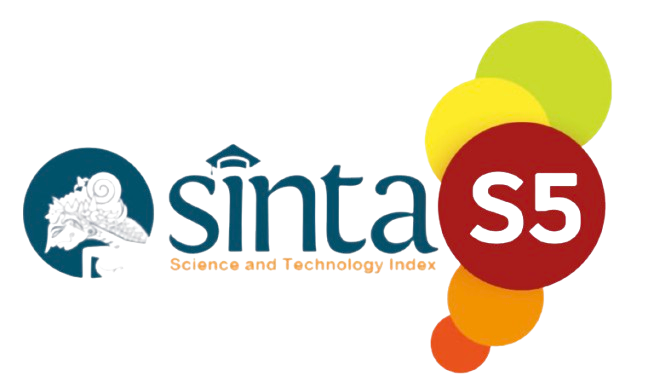Instincts Unleashed: A Cognitive Stylistic Analysis of Maroon 5’s Song “Animal”
DOI:
https://doi.org/10.52217/ijlhe.v8i1.1631Keywords:
cognitive stylistics, figurative language, metaphor, schema theoryAbstract
This study explores the cognitive stylistic features of Maroon 5’s song “Animal” through the lens of conceptual metaphor theory and schema theory. Employing a qualitative descriptive design, the research examines the interplay between metaphorical language and cognitive processes to uncover how figurative expressions evoke imagery, emotions, and conceptual mappings related to primal instincts and desire. The analysis focuses on identifying metaphorical expressions such as hunting and predation, interpreting their cognitive and emotional resonance. The findings reveal that metaphors and vivid imagery in the song not only depict themes of obsession and vulnerability but also activate cognitive schemas, connecting listeners to the raw, instinctual aspects of human nature. This study contributes to the field of cognitive stylistics by providing insights into how language interacts with cognition to construct meaning and elicit emotional responses in artistic texts.
References
Cronquist, U. (2004). Book Review: Cognitive Stylistics: Language and Cognition in Text Analysis. Language and Literature: International Journal of Stylistics, 13(4), 373–377. https://doi.org/10.1177/096394700401300408
Ermatova, D. (2024). Cognitive stylistics: Pioneering a new discipline at the intersection of cognitive science and literary analysis. Journal of Advanced Scientific Research, 5(9), 12–20. https://sciencesage.info/index.php/jasr/article/view/317/311
Haines, A. (2023). A new approach to the stylistic analysis of humour. Language and Literature: International Journal of Stylistics, 32(2), 195–208. https://doi.org/10.1177/09639470221138397
Hastomo, T., Aminatun2, D., Pgri, S., & Lampung, B. (2023). An Analysis of Metadiscourse Markers in Online News Media: Qualitative Research. Lexeme : Journal of Linguistics and Applied Linguistics, 5(1), 95–103. https://doi.org/10.32493/LJLAL.V5I1.27602
Muhammad, F., Hidayat, D. N., & Alek, A. (2021). An Analysis of Figurative Language in Maroon 5 – Nobody’s Love Song Lyrics. Wanastra: Jurnal Bahasa Dan Sastra, 13(1), 32–38. https://doi.org/10.31294/w.v13i1.9744
Putri, A. N., Hastomo, T., Farhan, M., & Yunaini, K. (2023). A Study of Interaction and Interactive Metadiscourse on Ukraine-Russia Conflict News Articles. Journal of English Teaching, Applied Linguistics and Literatures (JETALL), 6(1), 89. https://doi.org/10.20527/jetall.v6i1.15619
S, K. (2024). Exploring Deixis in Taylor Swift’s Song “Cardigan”: A Descriptive Qualitative Analysis. LinguaEducare: Journal of English and Linguistic Studies, 1(1), 29–38. https://journal.ciptapustaka.com/index.php/LEC/article/view/4
Semino, E., & Culpeper, J. (2002). Cognitive stylistics: Language and cognition in text analysis (Vol. 1). John Benjamins Publishing.
Simanjuntak, W. O., Saragih, S. E., Manurung, R. A., Sihotang, T., Alivia, C. P., & Rangkuti, R. (2023). A Cognitive Stylistic Analysis of Lewis Capaldi’s Song “Someone You Loved.” Klausa (Kajian Linguistik, Pembelajaran Bahasa, Dan Sastra), 7(2), 58–68. https://doi.org/10.33479/klausa.v7i2.880
Sirait, A. L., Siburian, J. Br., Sitompul, I. M., & Rangkuti, R. (2024). A Cognitive Stylistic Analysis of Pink Floyd’s Song Lyric “Time.” KLAUSA (Kajian Linguistik, Pembelajaran Bahasa, Dan Sastra), 8(1), 40–52. https://doi.org/10.33479/klausa.v8i1.903
Stockwell, P. (2010). Cognitive poetics: An introduction. Routledge.
Wedayanti, N. P. P., Ariyaningsih, N. N. D. , & Putri, I. G. A. V. W. (2021). An Analysis of Personification Found in John Meyer’s Selected Song Lyrics. Journal of Humanities, Social Science, Public Administration and Management (HUSOCPUMENT), 1(3), 120–125. https://doi.org/https://doi.org/10.51715/husocpument.v1i3.28
Zephanda, M., Nasution, F. H., Nasution, M. S., Siregar, L. H. A., & Rangkuti, R. (2024). A cognitive stylistic of Taylor Swift’s song “I Can Do It With a Broken Heart. Jurnal Pendidikan Multidisipliner, 7(6), 34–40. https://edu.ojs.co.id/index.php/jpm/article/view/419/500














